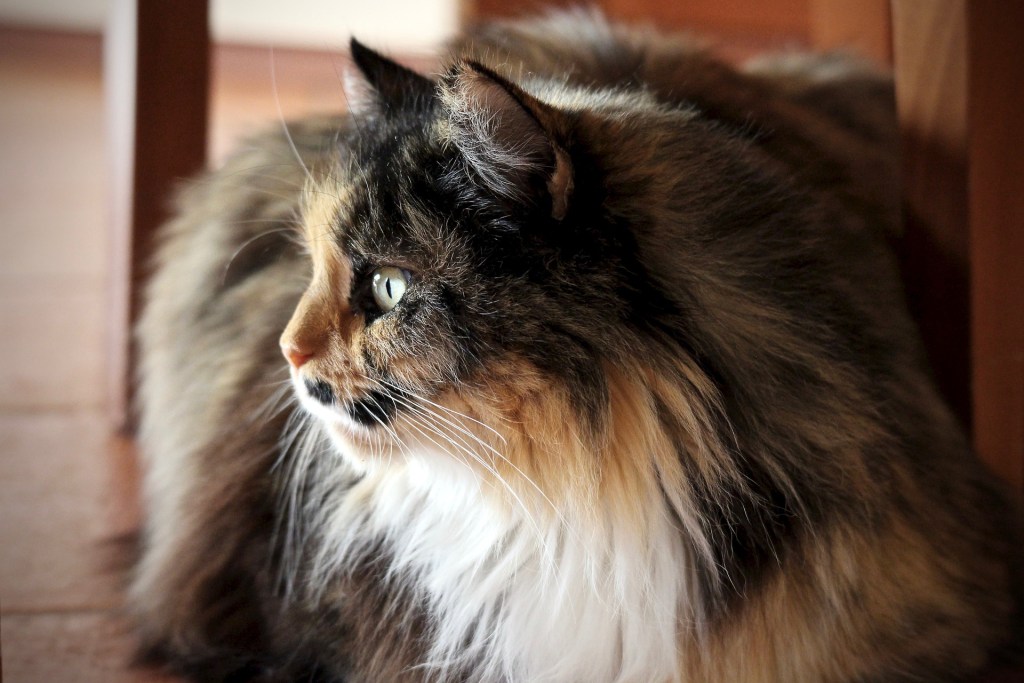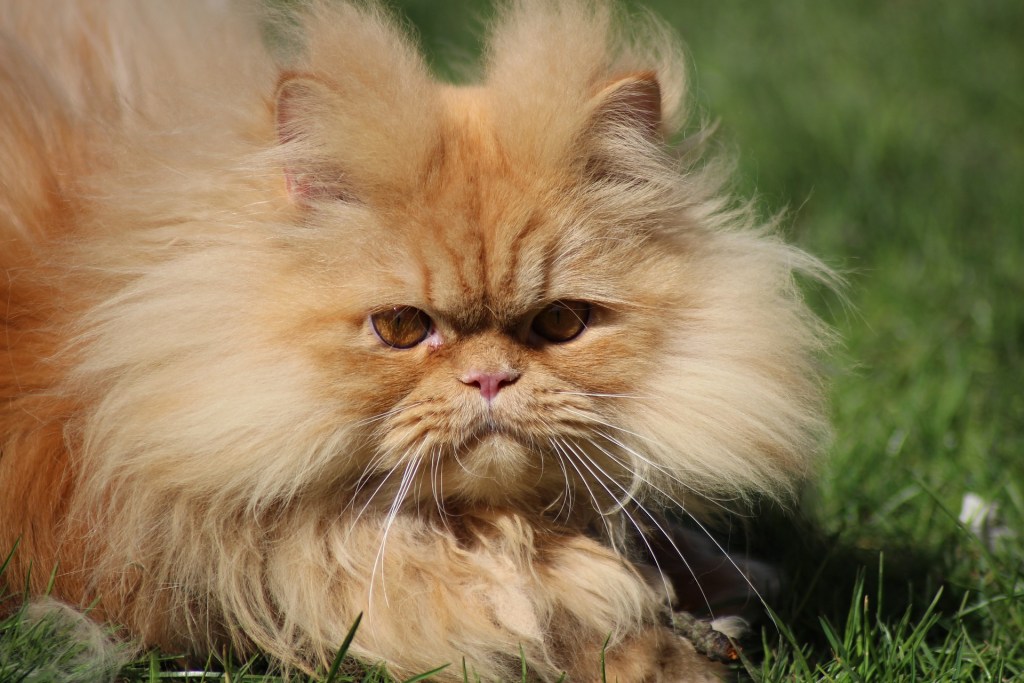Many cats do just fine in hot weather, but if you have a Persian cat, you’ll need to be extra cautious about keeping your kitty cool. Persians are a flat-faced, or brachycephalic, breed, meaning that their short noses and overall facial conformation might lead to reduced breathing efficiency and breathing conditions. Additionally, because of the breed’s long, thick coat, Persians typically have higher body temperatures than other breeds. These factors mean that the hot, humid summer weather can strongly affect the breed, potentially leading to overheating and heatstroke. If you have a Persian, you can put these ways to keep your cat cool to use this summer.
Keep your cat indoors
One of the best ways to ensure your Persian’s safety and comfort is to keep him inside during the summer. By doing so, you can regulate the temperatures that he’s exposed to and keep a close eye on him.
Turn on your fans or, even better, turn on your air conditioning on hot days. If you can, try to set a fan or air conditioner in a room your cat likes to retreat to for privacy. You can also leave the door to your basement open so your cat can go downstairs to cool off. Ensure that there’s plenty of airflow in your home, and your cat will naturally be cooler than he would out in the hot sun.

Groom your cat regularly
Persians have thick, long coats, and if that hair becomes matted, it can trap heat and make your cat warmer. Help your cat keep up with grooming by providing him with daily grooming sessions. This regular attention to his coat helps remove excess hair and prevent matting, keeping your cat not only cooler but more comfortable, too. If your cat goes outside, these grooming sessions also give you a chance to check for ticks and other parasites.
Add ice cubes to water bowls
You can add ice cubes to your cat’s water bowls to keep water cool and appealing. Some cats even like to play with ice cubes on your kitchen floor.
While you’re at it, make sure that your cat has plenty of water dishes throughout the house. Keeping water convenient and close can encourage your cat to drink. You might also want to invest in a water fountain to pique your cat’s interest and encourage him to stay hydrated.
Carefully time play sessions
The calmer your cat stays, the lower his body temperature will be, but some activity is important to keep your cat healthy. When you do play with your cat in the summer, schedule those play sessions so that they take place in the early morning or late evening, when the temperatures are lowest. Keep play sessions short and watch for signs that your cat is getting too warm, like a sudden lack of enthusiasm in play. It’s best to play with your cat in an air-conditioned room or a cool area of the house, like a basement.

Use cooling mats
You can provide your cat with a cooling mat to help bring his body temperature down. Consider placing a cooling mat in the places where your cat naps, like his cat bed or in a window seat. If your cat isn’t wild about lying on a cooling mat, you can use a damp towel and wipe down your cat’s belly to help lower his body temperature.
Provide plenty of shade
The hot sun can quickly warm up your home or apartment, so pull the shades on your windows until the evenings. Room-darkening curtains can be particularly helpful. Your cat will naturally seek out cool surfaces, like a tile or linoleum floor, so by keeping the sun from shining through, you’ll be providing your cat with plenty of spaces to lie down and chill out.
While these tips can help keep your cat cool, it’s important to familiarize yourself with common overheated-cat signs. If your Persian becomes unusually lethargic, starts panting, seems off-balance or staggers, starts to vomit, has a red tongue and mouth, or is breathing rapidly, you’ll need to get him to the vet right away. The faster you can identify signs that your cat is uncomfortable and too hot, the sooner you’ll be able to get him the help he needs. Hopefully, you’re able to keep your Persian cool and comfy all summer long and won’t ever need to seek help for an overheated kitty.


